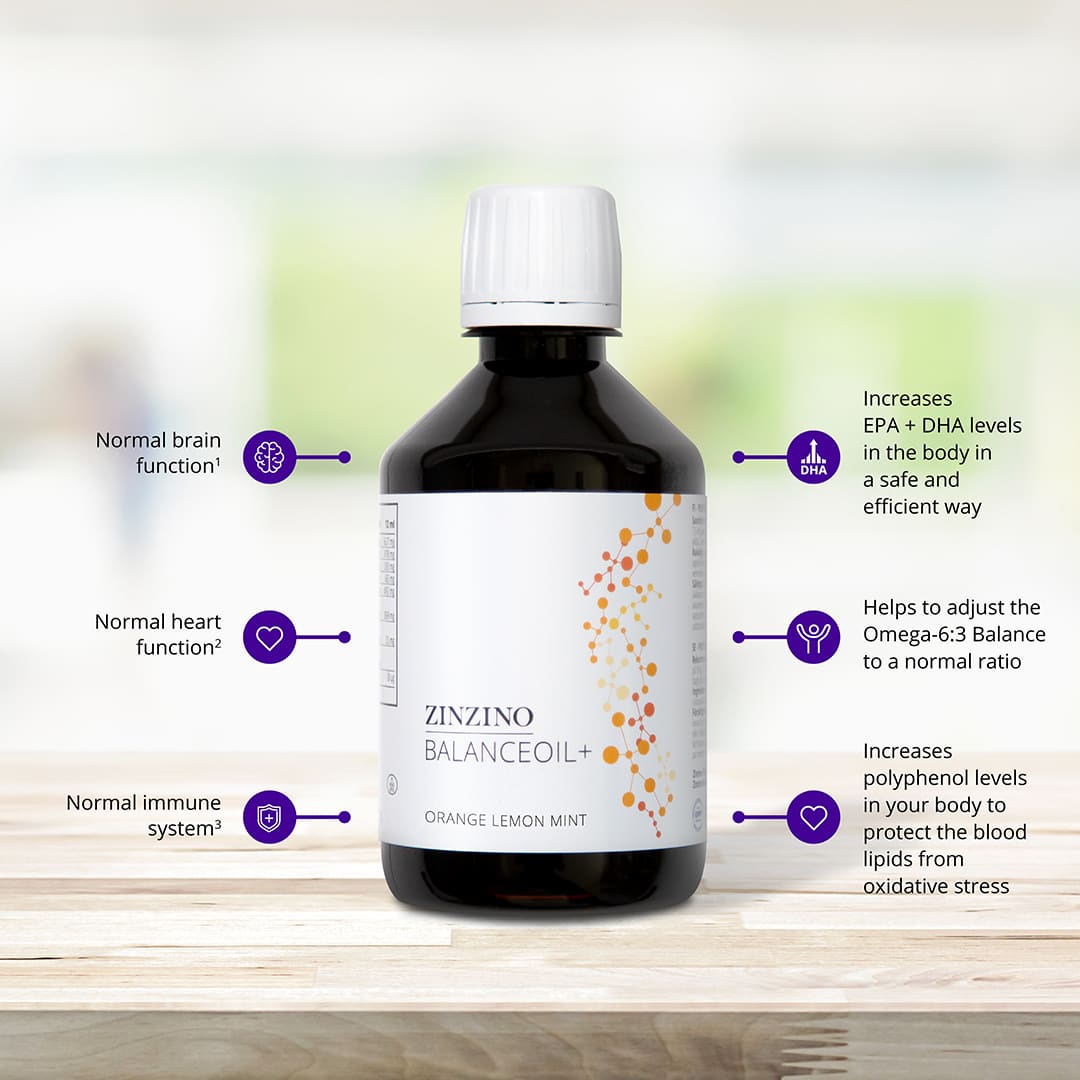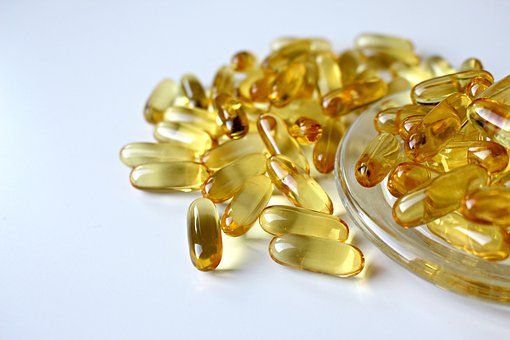What is Omega 6 and Omega 3 Balance?

An Introduction To A Balanced Omega 6 And Omega 3 Ratio.
Last Updated January 23, 2023
So What Is The Omega 6 And Omega 3 Balance?
And why is it important for your overall health,
to balance your Omega 6:3 ratio to a ratio close to
Or lower than a ratio of 3:1?
Did you know that both omega-3 and omega-6 fatty acids are necessary for our body to function properly?
They both play important roles in maintaining cardiovascular health, brain function, and overall growth and development.
This is why it is important to maintain a balance between Omega 6 and Omega 3 to achieve optimal health.
The ideal ratio of Omega 6 to Omega 3 is believed to be around 3:1, with some experts suggesting that a ratio as low as 1:1 would be even better.
This is because Omega 6 fatty acids are pro-inflammatory, while Omega 3 fatty acids are anti-inflammatory.
When the ratio is too high in favor of Omega 6, it can lead to an increase in inflammation in the body.
which over time can contribute to a wide range of health problems such as heart disease, cancer, and autoimmune disorders.
- Both omega-3 and omega-6 fatty acids are necessary for proper bodily function
- Both play important roles in maintaining cardiovascular health and brain function
- Maintaining a balance between Omega 6 and Omega 3 is important for optimal health
- The ideal ratio of Omega 6 to Omega 3 is believed to be around 3:1 or lower
- Omega 6 fatty acids are pro-inflammatory while Omega 3 are anti-inflammatory
- A high ratio of Omega 6 can lead to inflammation and health problems such as heart disease, cancer, and autoimmune disorders over time.
Table of Content:
- What Is The Omega 6 And Omega 3 Balance?
- The History Of The Omega 6:3 Balance
- Essential fatty acid deficiency
- Balance your Omega 3 and Omega 6
- How Do You Get In Balance And Know Your Own Omega 6:3 Ratio?
- Prostaglandin And Inflammation
- Why most sources of omega 3 won’t get you in balance
- Benefits Of Omega 3
Disclosure: Some of the links in this article may be affiliate links, which can provide compensation to me at no cost to you if you decide to purchase a product or premier kit. These are products I’ve personally used and stand behind.
The History Of The Omega 6:3 Balance

to have a ratio of Omega 6 and Omega 3 in our body that is 1:1
which means that per one part of Omega 6, we need one part of Omega 3.
The average Omega 6:3 balance in the western world is between 7:1 to 25:1 and up.
So what went wrong?
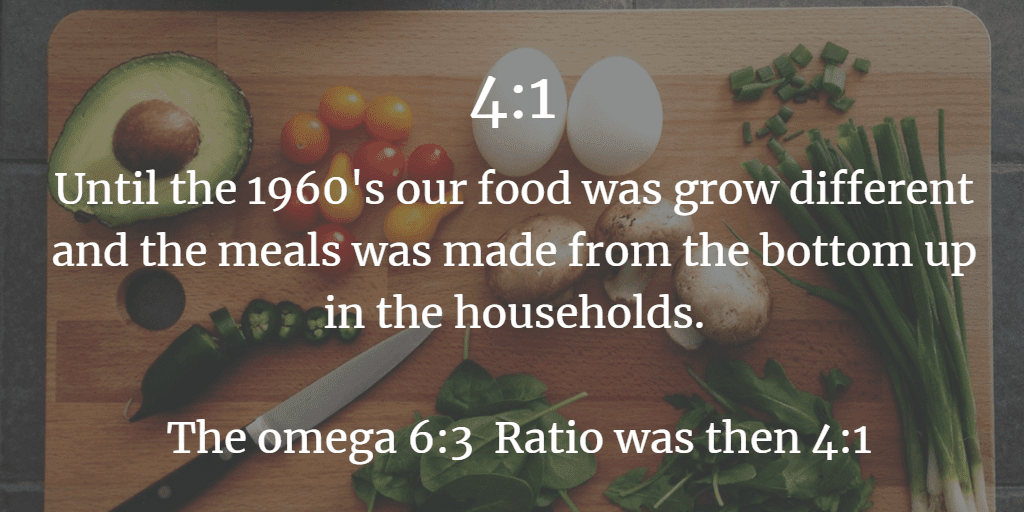

Previous
Next
How did History Change The Omega 6:3 Balance?
In the early ages of mankind, when we gathered/hunted for our food, our DNA was programmed to have an omega 6 to omega 3 ratio, of 1:1.
When we started to farm the land and made the food from the ground, the Omega 6:3 ratio went up to a ratio close to 4:1.
This ratio has been going up for the last 60-100 years and the result of what effect this has on our bodies is becoming more and more clear.
The rise of many lifestyle-related diseases can in most cases be linked to this imbalance and the nutrient deficiency most of us have in the modern world.
Processed Foods
The introduction of processed food back in the 1960’s changed the balance drastically.
In order for the food to last longer and taste better we chose to add huge amounts of plant-based oils (Omega-6) to the food. This was necessary with the introduction of supermarkets.
Today most people have an unbalanced Omega 6 to Omega 3 ratio.
In our modern society, most people have an Omega 6 to Omega 3 ratio in the range of 7:1 and in most cases 20:1 or higher.
“The high amounts of omega-6 fatty acids and low levels of omega-3 fatty acids found in today’s Western diets promote the pathogenesis of cardiovascular disease, cancer, inflammatory conditions, and autoimmune diseases.”
Artemis Simopoulos, MD, president of the Center for Genetics, Nutrition, and Health and author of The Omega Diet.
Omega 6 Vs. Omega 3

Omega 6 and Omega 3 are critical to your overall health.
The right ratio of omega 6 and omega 3, is important, for your body to work optimally, and to improve long-term health.
How To Get A Healthy Omega 6 To Omega 3 Ratio
Get A Balanced Omega 6:3 Ratio Close To 3:1 or lower in 120 days.
With The Test-Based BalanceOil+ From Zinzino, You can measure your before and after results!
Edit Template
Essential fatty acid deficiency
What Are The Essential Fatty Acids?
Omega 3 and Omega 6 are the only essential fatty acids, which means that your body can’t produce them by itself and needs them from an outside source.
That’s why they are termed “essential” fatty acids (EFA).
Omega 6 and Omega 3 are the most important fatty acids.
We need both in the diet. Otherwise, we risk ending up sick.
The (EFA) is supporting many vital roles in your overall health, this includes ensuring proper growth and development of the brain and nervous system, and reducing the risk of chronic illnesses, such as heart disease.
They play a critical role in helping the cell walls to become more fluid, increasing nutrient absorption, and getting rid of waste products from the cells.
Research shows that omega 3 and omega 6 work together to help manage blood pressure and blood clotting.
They also help to regulate the immune system, including the body’s inflammation response.
Essential fatty acid deficiency is linked to a wide range of symptoms and disorders.
- Omega 3 and Omega 6 are essential fatty acids that the body can’t produce on its own
- They are important for overall health, including growth and development of the brain and nervous system
- They play a critical role in helping the cell walls to become more fluid, increasing nutrient absorption, and getting rid of waste products from the cells
- Omega 3 and Omega 6 work together to help manage blood pressure and blood clotting
- They also help to regulate the immune system, including the body’s inflammation response
- Essential fatty acid deficiency is linked to a wide range of symptoms and disorders.
Omega-6/Omega-3 Imbalance
And Chronic Diseases
| Subject | Omega-6/Omega-3 Ratio | Comment |
| When Humans Were Developed | 1:1 | Establishment Of Genetic Pattern |
| Todays Western Diet | 15-25:1 | Plant Oils And Meat Are Preferred Over Fish |
| Cardiovascular Disease | 4:1 | Up To 70% Reduction In Mortality |
| Colorectal And Breast Cancer | 2.5:1 | Reduced Risk of Developing Cancer |
| Inflammatory Diseases | 2-3:1 | Reduced Inflammation Of Arthritis |
| Autoimmune Diseases | 5:1 | Favorable effect against Asthma |
Artemis P. Simopoulos, 2008 Minireview – The Importance of the Omega-3 Fatty Acid Ratio in Cardiovascular Diseases and Other Chronic Diseases Society for Experimental Biology and Medicine, 674-688. *The Center for Genetics and health, Washington, DC 20009, Artemis P. Simopoulus. 2011. Evolutionary Aspects of Diet. The Omega-6/Omega-3 Ratio and the Brain. Mol. Neurobiology, 29. January 2011.
How To Get A Healthy Omega 6 To Omega 3 Ratio
Get A Balanced Omega 6:3 Ratio Close To 3:1 or lower in 120 days.
With The Test-Based BalanceOil+ From Zinzino, You can measure your before and after results!
Edit Template
Balance your Omega 3 and Omega 6
In the years ahead, it is expected that we will see a massive increase in lifestyle-related diseases.
The imbalance between omega-6 fatty acids and omega-3 fatty acids in the body is a driving force for the development of lifestyle-related health problems.
Science is starting to point at the omega 6/3 ratio as one of the main reasons we are seeing a rise worldwide in lifestyle diseases and chronic inflammation or you could say a fire within our bodies.

A thumb rule says, that:
Most Omega 6’s causes inflammation, and most Omega 3 is anti-inflammatory.
How Do You Get In Balance And Know Your Own Omega 6:3 Ratio?
The Omega 3 Dry Blood Spot Test
Zinzino, is one of the leading companies in omega 6 and omega 3 balance products.

The company has made a concept, where you can test your fatty acid profile in the blood, this includes the omega 6:3 ratio.
With their Balance Oil, you can obtain an omega 6:3 balance of 3:1 or lower in just 120 days.
Vitas, one of the leading laboratories in the Nordic countries, has analyzed more than 840.000 anonymous first-time blood sample tests from customers before starting on the Balance Oil, which shows that the average ratio of Omega 6:3 is:
The Average Balance Of The Western World.
- In Scandinavia: 12:1
- In Europe: 15:1
- In the USA: 23:1
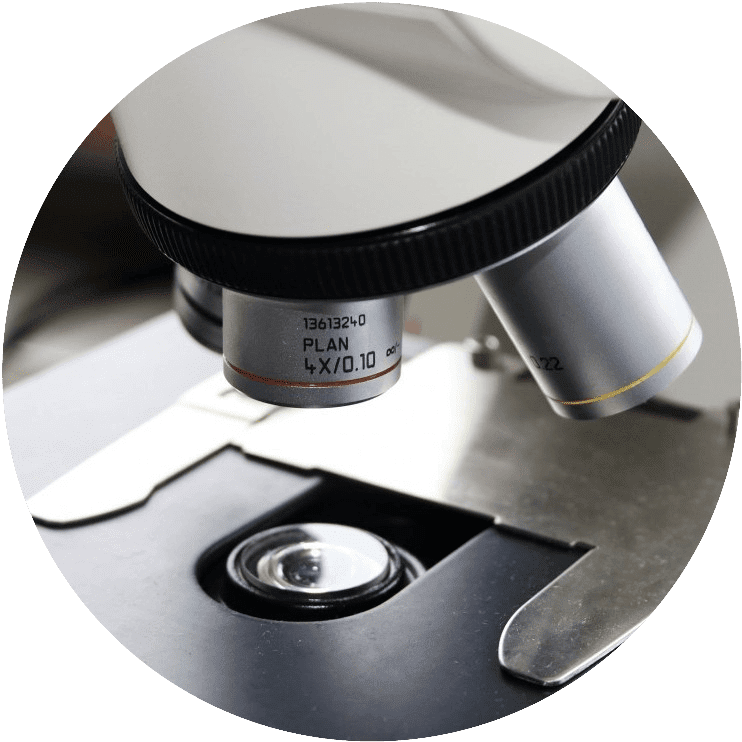
Out of those tested in Europe:
- 75% didn’t take Omega 3 supplement and had an average balance of 12:1
- 20% took some Omega 3 supplement and had an average balance of 7:1
- 5% had a balance of 3:1 in Europe
95% of those who took the BalanceOil on a daily basis,
optimized their omega 6/3 balance to a ratio of 3:1 or lower after 120 days.Only 5% of those who took the BalanceOil on a daily basis didn’t get a balance of 3:1 or lower.
The recommended ratio from WHO is between 4:1 and 2:1, for optimal health benefits it should be 3:1 and lower, according to studies made.
The importance of the ratio of omega-6/omega-3 essential fatty acids.
How To Get A Healthy Omega 6 To Omega 3 Ratio
Get A Balanced Omega 6:3 Ratio Close To 3:1 or lower in 120 days.
With The Test-Based BalanceOil+ From Zinzino, You can measure your before and after results!
Edit Template
Prostaglandin And Inflammation
Our body reacts to a bee sting by swelling the attacked area (causing acute inflammation) and telling the body’s immune system to send aid to the inflamed area.

A complicated process of inflammation and blood clotting is triggered.
As a part of this process, a group of signal hormones called prostaglandins is formed during a chemical reaction at the site where the injury or other issue occurred.
What makes prostaglandins unique among hormones, is that they are not secreted from a gland, but are created at the time they are needed directly where the problem exists.
Problems with prostaglandins can limit the healing process, cause increased inflammation and pain, and impact your overall health.
Once the attack is under control, the anti-inflammatory Omega 3 kicks in.
Omega-6/Omega-3 Balance And Prostaglandin Balance In The Body
Production of prostaglandins is strongly affected by our diet, but also by the body’s hormone balance, health status, and medication.
Due to the high consumption of vegetable oils and meat from grain-fed animals, many people have a surplus of arachidonic acid (AA, omega-6 ) in their bodies.

This may result in an imbalance between omega 6 and omega 3. If such a situation is sustained over time, chronic inflammation may develop and promote lifestyle-related health issues.
However, prostaglandin balance may be restored by changing to a diet rich in marine omega-3 fatty acids.
For more information on prostaglandins, take a look at this link: Prostaglandin synthesis
Why most sources of omega 3 won’t get you in balance
Eating Fish
Farmed salmon contains more omega 6 than wild-caught salmon because they are mostly fed with soy, corn, and other Omega 6-rich fodder (Not to mention all the antibiotic treatments and sea lice treatments).
The seas are getting more and more contaminated, so the fish contain more heavy metals than is good for us (and them). The higher up the food chain, the more heavy metals they contain.

(2) Even some canned tuna in oil, contain a ratio of Omega 6:3 up to 15:1 This is because the oil used in the can is Omega 6.
If you were to balance your Omega 6:3 ratio by eating fish. Some suggest that you would have to eat fish twice a day to get enough EPA (eicosapentaenoic acid) and DHA (docosahexaenoic acid), which are the active compounds in the Omega 3 fish oil. (and that would have to be wild-caught deep-sea fish to avoid heavy metal contamination).
What About Plant-Based Omega 3?
You might have heard that you can get Omega 3 in foods like flax, chia seeds, and walnuts.

It’s true that these are excellent vegetarian sources, but the form of Omega-3 in these products is called Alpha-Linolenic acid or ALA, which the body has to convert into the longer chain EPA and DHA to benefit from it…
The problem is that the body can only convert a small portion (1-5%), into the beneficial EPA and DHA. But it’s still a good idea to supplement with those along with marine-based Omega 3’s.
What about Fish Oil Supplements?
Most fish oils go through a refining process where it’s cleaned of heavy metals and other contamination (which is good).
But in that process, the natural polyphenols that are in the fish protecting against oxidation are removed, exposing the oil to oxidation.
This destroys the Omega 3 and makes it harsh, which has adverse health effects.
So to keep the oil from oxidation, most fish oils are added vitamin E to help prevent oxidation.
This is all fine, but unfortunately, it’s not enough, because it takes the body up to 30 – 35 hours to fully uptake the oil and in that time most fish oils tend to get oxidized and thus have the opposite effect than desired.
Another overlooked issue is that many fish oil supplements come in capsules and are dosed wrongly since the correct dose depends on weight and how much EPA and DHA the oil contains.
Oil Stability Index
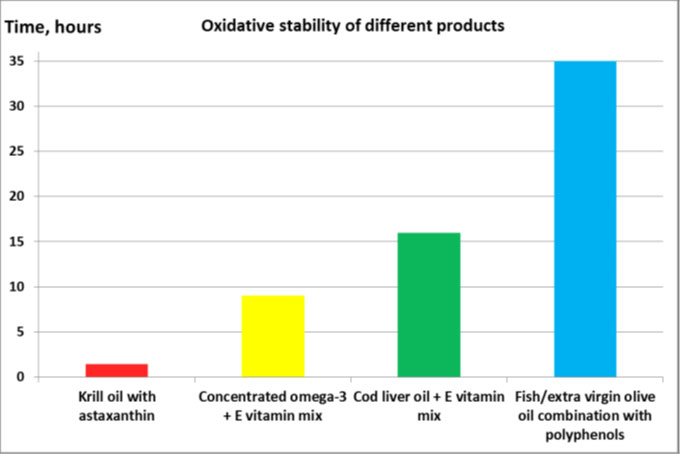
AOCS Official Method Cd12b-92 Average of 3 analyses at 70°C SINTEF – Fisheries and Aquaculture – August 2010
Read my Zinzino review here –>
How To Get A Healthy Omega 6 To Omega 3 Ratio
Get A Balanced Omega 6:3 Ratio Close To 3:1 or lower in 120 days.
With The Test-Based BalanceOil+ From Zinzino, You can measure your before and after results!
Edit Template
Benefits Of Omega 3
1. Brain – Help maintain optimal and healthy brain function.
2. Circulation – Help maintain optimal and healthy circulation.
3. DNA Protection – Helps protect your DNA from free radical damage.
4. Anti-Oxidant – Protects your cells from oxidative stress by free radicals.
5. Cell Function – Provides nutrients vital to optimal cell function.
6. Bone Health – Provides nutrients vital to a healthy bone structure.
7. Vision – Helps maintain optimal and healthy eye function.
8. Hair and Nails – Supports healthy hair and nails.
9. Skin Health and Elasticity – Promotes skin health and elasticity.
10. Heart – Helps maintain optimal and healthy heart function.
11. Immune System – Supports optimal and healthy immune function.
12. Muscle Health – Supports optimal and healthy muscle function.
* These statements have not been evaluated by the Food and Drug Administration.
These products are not intended to diagnose, treat, cure or prevent any disease.
Read my Zinzino review here –>
Please leave a comment or question below.

